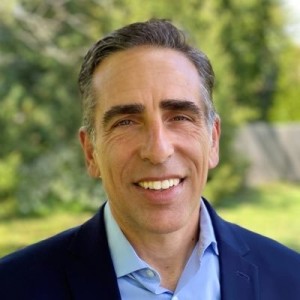Bobby Schindler is President of the Terri Schiavo Life & Hope Network and Associate Scholar at the Charlotte Lozier Institute. Bobby advocates for the medically vulnerable in honor of Terri Schiavo, his sister. Bobby's life took a dramatic and unexpected turn when his older sister, Terri, suddenly collapsed and was left with a profound brain injury. When Terri's estranged husband sought court permission to starve and dehydrate her to death, Bobby was propelled into a life he'd never imagined.
A full-time advocate, speaker, and writer, Bobby and the Terri Schiavo Life & Hope Network have been instrumental in providing resources and support to more than 2,700 patients and families at risk of euthanasia, assisted suicide, and denial-of-care situations from physicians, hospitals, insurance companies, and others. Bobby is a member of the American Society for Bioethics and Humanities, and his writings have appeared in the Wall Street Journal, Chicago Tribune, TIME, The Linacre Quarterly, National Review, Human Life Review, The Washington Times, and others. He spoke in defense of his sister on numerous national television and radio programs including Hannity & Colmes, Larry King Live, The Oprah Winfrey Show, The Glenn Beck Program, Good Morning America, The Early Show, The Today Show, Dateline NBC, The 700 Club, EWTN and others. Bobby co-authored the book “A Life That Matters: The Legacy of Terri Schiavo” as a resource for those seeking to understand an accurate account of Terri’s fight.
![]() Bobby has spoken in more than 45 states and in more than a dozen countries. He has spoken especially to young people at dozens of colleges and universities, with special emphasis on medical and law students. He speaks not only with firsthand accounts of Terri’s story—which was often misrepresented by mainstream media—but also on topics relating to the medically vulnerable today, particularly including the right to food and water, medical ethics and the bioethics movement, and how to uphold human dignity for a disabled or medically fragile loved ones. He has testified before state legislatures in Florida, Louisiana, California, Kentucky, Ohio, and has addressed Members of Parliament in Australia and Canada concerning the protection of the medically vulnerable.
Bobby has spoken in more than 45 states and in more than a dozen countries. He has spoken especially to young people at dozens of colleges and universities, with special emphasis on medical and law students. He speaks not only with firsthand accounts of Terri’s story—which was often misrepresented by mainstream media—but also on topics relating to the medically vulnerable today, particularly including the right to food and water, medical ethics and the bioethics movement, and how to uphold human dignity for a disabled or medically fragile loved ones. He has testified before state legislatures in Florida, Louisiana, California, Kentucky, Ohio, and has addressed Members of Parliament in Australia and Canada concerning the protection of the medically vulnerable.
Bobby holds an M.S. in Bioethics from the University of Mary and a Certificate in Health Care Ethics from the National Catholic Bioethics Center, as well as degrees from LaSalle University and Florida State University. He lives in Cincinnati with Kristina, his wife, and a happy family of nine, where he serves on the Cincinnati Right to Life board of directors.
Talk Topics
1. Terri Schiavo: A Life That Matters— Introducing audiences to Terri Schiavo, her family’s fight for her right to life, the central role of the media in shaping public opinion, and the lasting impact of her public fight. Appropriate for any audience.
2. Caring for Disabled and Medically Vulnerable Loved Ones— Teaching audiences how to be an heroic advocate for disabled and medically vulnerable loved ones, with a focus on Advanced Directives, medical power-of-attorney rights, and stories of hope and recovery. Appropriate for any audience, but particularly for Christians and families.
3. Catholic Health Care: Ordinary v. Extraordinary Care— An introduction to the distinctions between ordinary and extraordinary care, using Terri Schiavo and other prominent persons to demonstrate how to respect human dignity without artificially sustaining life past its natural conclusion. Appropriate for any audience, but particularly for Catholics in churches and schools.
4. The Basic Right to Food and Water— Exposing audiences to the incredible fact that food and water is regulated by healthcare providers and considered “medical treatment” when delivered by feeding tube. This is a treatment relied upon by millions of Americans annually, and countless Americans die each year from the fatal withdraw of basic food and water. Yet, hope exists to change how healthcare providers regulate access to this basic and ordinary care. Appropriate for any audience, but particularly for political audiences and pro-life advocates.
5. Considering Human Dignity— Introducing audiences to the basics of human dignity, medical ethics, and proper bioethical perspectives on delivering basic and ordinary care including the issues of “personhood” theory, “futile care” rulings, and the “quality of life” diagnosis. Appropriate for any audience, but particularly young people and medical/law students.











